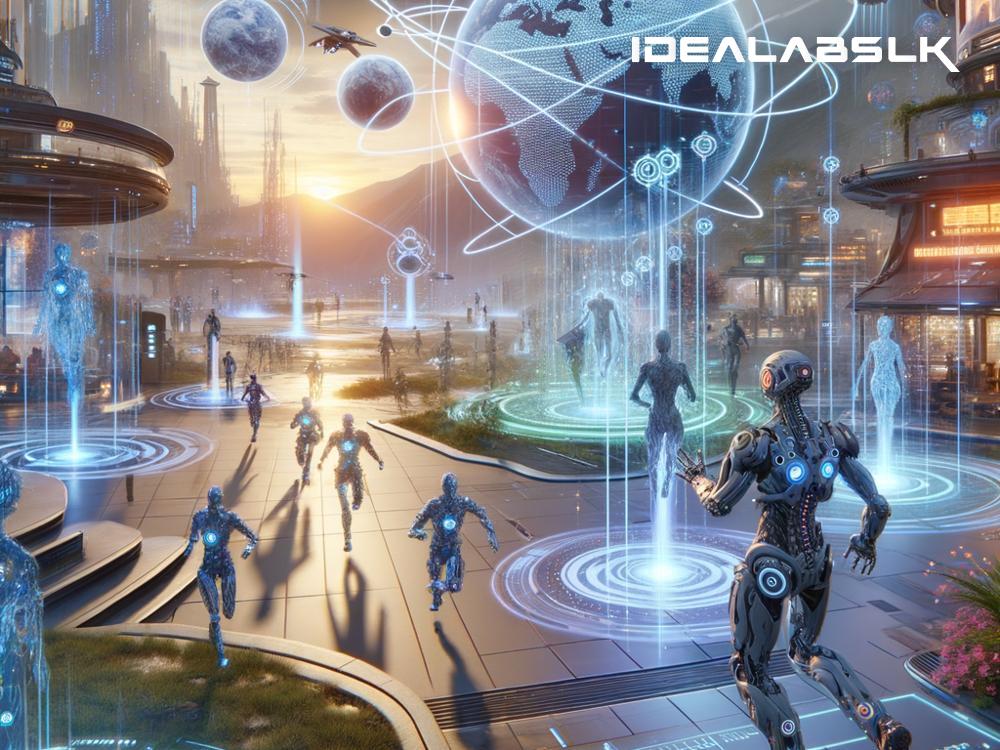How AI is Revolutionizing Open-World Games: Adaptive Environments and NPCs
In the world of video games, especially in open-world games, there's a revolution happening right now that's changing the way we play and experience adventures. This revolution is powered by artificial intelligence, or AI for short. AI is not just about robots; it's about creating smarter systems that can learn, adapt, and make decisions. When it comes to open-world games, AI is transforming everything, from the environments we explore to the characters we meet. Let's dive into how AI is making these virtual worlds more alive and immersive than ever before.
Adaptive Environments: The World That Reacts to You
Imagine stepping into a game where the world changes based on your actions. That's exactly what AI is making possible. In the past, game environments were static. If you visited a town or a forest, it would always stay the same, no matter how many times you came back. But now, with AI, these environments can adapt and change.
For example, if you decide to be a hero and save a village from bandits, the villagers might start treating you differently, offering you better deals in shops or asking for your help with new problems. On a larger scale, if you influence a major event in the game, it could change the weather, the types of creatures that appear, or even the landscape itself. This adaptive environment makes every player's experience unique and personal.
NPCs: From Background Extras to Main Characters
Non-playable characters (NPCs) have been in games for as long as we can remember. They’re the characters that give you quests, sell you items, or just populate the world to make it feel alive. However, they often felt like scripted robots, repeating the same lines and having no real awareness of what's happening around them. But now, AI is changing that too.
Thanks to AI, NPCs can now remember your actions and react accordingly. If you helped someone in the past, they might greet you warmly or come to your aid in a future battle. Similarly, if you wronged them, they might refuse to talk to you or even become your enemy. This makes interactions much more realistic and engaging.
Beyond personal relationships, NPCs can now have their own lives. They go about their daily routines, react to changes in their environment, and can even make decisions that impact the story. This level of complexity adds depth to the game world, making it feel more real and alive.
The Challenges and Opportunities of AI in Open-World Games
Integrating AI into open-world games is not without its challenges. Creating these adaptive environments and complex NPCs requires a lot of resources and testing to ensure they behave as intended. There's also the risk of unpredictability, where AI might act in unexpected ways that could disrupt the gameplay or narrative.
However, the opportunities far outweigh the challenges. AI opens up new possibilities for storytelling, where the story can change dramatically based on the player's actions, creating a truly personalized experience. It also allows for more replay value, as players can return to the game and experience it in a completely different way based on different choices or actions.
Looking to the Future
As technology continues to advance, we can only imagine what the future holds for AI in open-world games. We might see worlds that evolve over time, even when we're not playing, or AI characters that can form complex relationships with players and each other. The boundary between the virtual and real world will continue to blur, offering experiences that are currently beyond our imagination.
In conclusion, AI is revolutionizing open-world games by creating adaptive environments and NPCs that make these virtual worlds feel more alive and immersive. As players, we're just beginning to explore the possibilities this offers, embarking on adventures that are as unique and personal as our own lives. The future of gaming is here, and it's powered by AI.

